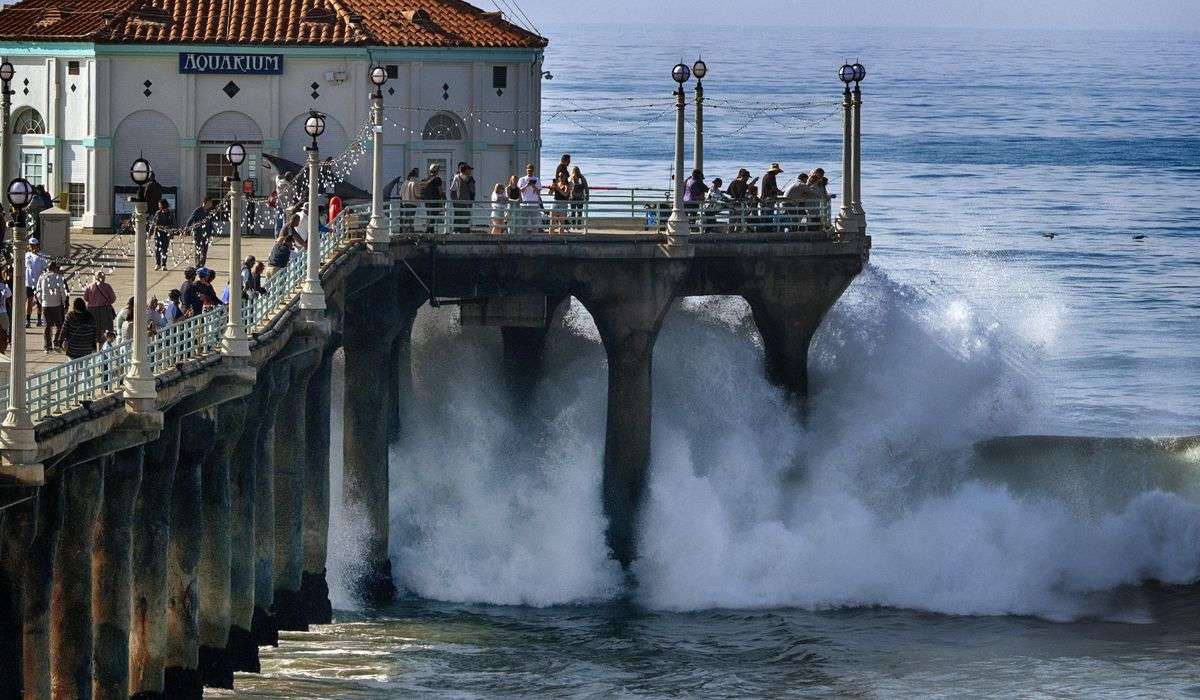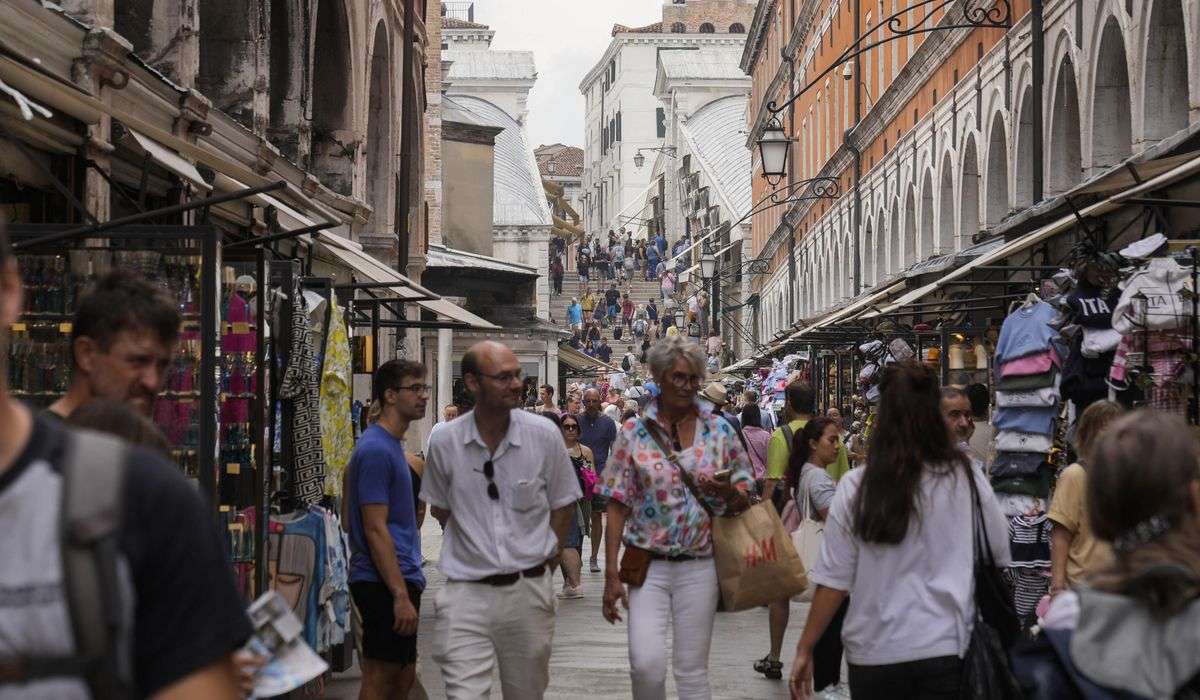Homecomings used to feel special. But that was before we spent all our time at home.
By Liz Langley,
Illustration by Xiao Hua Yang for The Washington Post
There was a time when the best part of a trip was walking in your own front door. That was then.
Our relationship to our homes has changed over the course of the pandemic. The time we spend — and spend and spend and spend — inside them no longer feels like a luxury to most people. It’s a duty. It’s health care. It’s going to work or school. What it isn’t is fun. With so many of us suffering from Daffy Duck-level cabin fever, will we ever return to a time when coming home will be a big deal?
When I was traveling a lot, my return ticket was always a source of joy. I even had a homecoming ritual, which was to lie about my return date. Because travel is social even when you do it alone. There’s the clammy intimacy of public transportation, the weirdly competitive crush at baggage claim (“I got it! I got it!” you say, like you just cracked the Zodiac cipher instead of recognizing your own suitcase) and the tourist attractions so crowded that now, when you think of the Sistine Chapel, you remember the sweaty crush of shoulder-to-shoulder humanity more vividly than Michelangelo’s ceiling.
Lying about my return date gave me time to enjoy the solitude of my completely private space — and once I told people about it for this story, I found out that nearly everyone I know does the same thing.
With cocooning no longer at a premium, I wondered whether coming home would evoke the warm, cozy feeling it used to or be akin to Harry Potter returning to his cupboard under the stairs after experiencing the freedom of Hogwarts.
[Isolating in a Himalayan hotel forced this restless traveler to rethink his ‘allergy to boredom’]
“I still feel like coming home is a big deal, maybe even more so now,” said Amy Lebowsky, a Ferndale, Mich., Web design manager whose only excursions during the pandemic have been camping trips.
It wasn’t just central heating and hot showers that made homecoming so gratifying. “When you get out on the road you feel really free, like you just busted out of jail,” she said. “But when you return you feel really safe, because you have control of your own world.” You don’t have to worry about “every person at every roadside attraction or gas station.”
Orlando writer-illustrator Tara Bradley Connell was happy to fly to Kansas City, Kan., to see her family, “but when I got home, I just wanted to crawl back into my cocoon and regroup,” she said. “The need to reboot is stronger now.”
Her front-end homecoming ritual — making her bed “with clean sheets and lavender spray” before she leaves for a trip — gives her a head start.
My first trip to Europe was during a 1992 heat wave. I found out that Europeans really do drink things at room temperature and don’t put an avalanche of ice in a glass, like Americans do, so I was very specific when I asked a Berlin street vendor for a Diet Coke.
“Is it cold?” I wanted to know.
“Ist kalt, ist kalt,” she said and rolled the can across her generous, bare bosom as if to show me how chilly and refreshing it would be while simultaneously making sure it wasn’t.
After taking a “when in Rome” approach during the glorious three-week trip, I hit the Charlotte airport and got the biggest Diet Coke I could find, with enough ice to float a few seals. To this day I make sure there are a couple of icy cold cans of Diet Coke in the fridge — even if I’m coming home from Canada in December.
Clean sheets, cold drinks — home is where we recharge our batteries. Being able to find new ways to love it even as its sameness drives us crazy may be a testament to our adaptability.
In a two-week study conducted at the beginning of the coronavirus pandemic, subjects reported feeling like themselves again within the 14-day span of the research. Trevor Foulk, an assistant professor at the University of Maryland’s Robert H. Smith School of Business and one of the study authors, said most stressors are episodic — they happen and are finished, like losing a job or going through a breakup. “Because we’ve generally thought of stressors that way, no one ever really asked, ‘Do we start recovering even while the thing is happening?’ ” Foulk said in an email.
[These are boom times for boredom and the researchers who study it]
The study suggests that people rebound more quickly than you might expect. Despite the continued presence of the stressor, “our psychological immune system was still working in a surprisingly efficient way,” Foulk wrote.
Of course no one feels quite normal. As Tara Haelle writes in Medium, if you feel increasingly disconnected it might be because what psychologist Ann Masten calls our “surge capacity” — a short-term ability to rise to terrible occasions — has been depleted by having 2020 throw bad news at us like a demonically possessed tennis ball machine.
But we adapted, after a fashion. As the pandemic dragged on, Foulk said, our days came to revolve around home as they once had around work. “That’s what you miss now,” he said. Where we may once have pined for our cubicles or our commutes, we would now feel bereft without our porch swing and our sectional couch.
Home has long been “our landing spot to restore from the rest of the world,” said Lindsay T. Graham, a psychologist at the University of California at Berkeley’s Center for the Built Environment who studies the fit between people and the environments where they live and work. But now it also has to be all the places that once provided our daily changes of scene, be it the gym, the movies or the neighborhood restaurant. Even as a haven it can become monotonous, she said.
People crave variety. When we’re bored, “we display signals of stress within our bodies,” Graham said, citing a 2013 study by University of Waterloo cognitive neuroscientist James Danckert. Participants were shown interesting, sad and boring movie clips and tested afterward for a variety of physiological reactions. Danckert found that the boring clip induced higher levels of the stress hormone cortisol than the sad one.
Our natural hunger for new horizons is at the root of cabin fever. It’s also what made reporter Jeff Truesdell and his husband, Nelson Figueroa, head out on a two-week road trip from their home in St. Louis to the outskirts of Great Falls, Mont., as winter closed in.
“Coming home was always a delight,” Truesdell said, and this time was no different. Taking that extra day to “unpack, open the mail, exhale” in your own space at your own pace is a balm after a long time away.
“Home is truly where the heart resides,” he said. “And where you can surround yourself with framed photos of your trips that beckon you out again — after you pay off the previous one.”
It was not cabin fever that made Christine Ciarmello decide it was time to hit the road.
“I was starting to have an unhealthy relationship with my house,” said Ciarmello, a writer and editor in New Orleans. “I thought there was a chance I’d never leave it.”
Worried that she was getting too comfy in her comfort zone, she headed to San Francisco with her husband earlier this month. The couple’s California getaway came with a pandemic-era coda: a two week self-quarantine. “So much for padding in that one day of downtime,” she said.
As for homecoming rituals, she had a coronavirus test before her trip and will have another one when she gets back.
“It’s the new making sure the fridge is stocked with wine,” she said.
Langley is a writer based in Orlando. Find her on Twitter: @LizLangley.
More from Travel:
So you’re stuck at home. Here’s a guide to finding great art while in isolation.
With travel podcasts, explore the world through your ear buds
My trip to London was canceled, so I took it on YouTube instead






